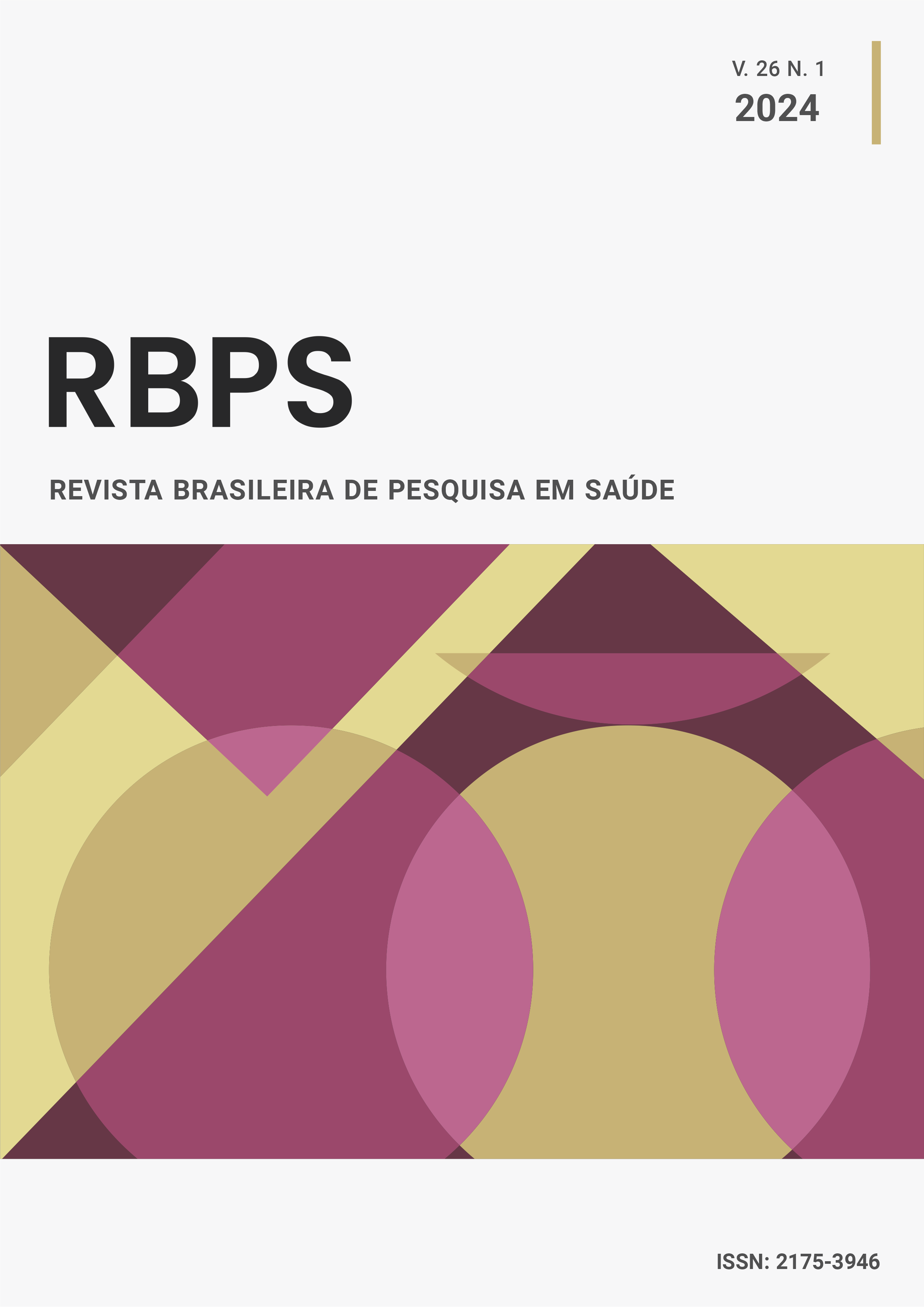A influência da depressão na efetividade da reabilitação motora pós-AVC
DOI:
https://doi.org/10.47456/rbps.v26i1.42038Palavras-chave:
Acidente Vascular Cerebral, Reabilitação, DepressãoResumo
Introdução: O Acidente Vascular Cerebral (AVC) tem se consolidado entre as três maiores causas de mortalidade e a maior razão para incapacidade em adultos no mundo. Após esse evento, grande parte dos sobreviventes é submetida ao tratamento de reabilitação após a alta hospitalar, visando o retorno às atividades diárias e superação das limitações de mobilidade e comunicação. Entretanto, alguns fatores podem estar envolvidos com um mau prognóstico e baixa eficácia da reabilitação em determinados casos, como a depressão. Objetivo: Avaliar o impacto da depressão na efetividade da reabilitação motora pós-AVC. Métodos: Trata-se de uma revisão narrativa da literatura através da análise de artigos publicados entre os anos de 2018 e 2022 nas bases de dados PubMed, SciELO e Lilacs. Foram utilizados como descritores “Stroke”, “Depression” e “Rehabilitation”. Resultados: Um total de 18 artigos foi encontrado a partir do uso dos descritores, sendo que, desses, seis artigos foram incluídos no estudo, após aplicação dos critérios de inclusão e exclusão. Conclusão: Conclui-se que sintomas depressivos exercem uma influência negativa sobre o processo de reabilitação motora do paciente pós-AVC e, por isso, devem ser rastreados e atenuados de forma precoce, uma vez que tem potencial tanto para retardar resultados do tratamento, como reduzir a eficiência do processo.
Downloads
Referências
Rafsten L, Danielsson A, Sunnerhagen KS. Anxiety after stroke: a systematic review and meta-analysis. J Rehabil Med, 2018;50(9):769-778.
Kobylańska M, Kowalska J, Neustein J, Mazurek J, Wójcik B, Bełza M et al. The role of biopsychosocial factors in the rehabilitation process of individuals with a stroke. Work, 2018;61(4):523-535.
Zhang L, Zhang T, Sun Y. A newly designed intensive caregiver education program reduces cognitive impairment, anxiety, and depression in patients with acute ischemic stroke. Braz J Med Biol Res, 2019;52(9):e8533.
Chohan SA, Venkatesh PK, How CH. Long-term complications of stroke and secondary prevention: an overview for primary care physicians. Singapore Med J, 2019;60(12):616-620.
Cui Q, Naikoo NA. Modifiable and non-modifiable risk factors in ischemic stroke: a meta-analysis. Afr Health Sci, 2019;19(2):2121-2129.
Appleton JP, Sprigg N, Bath PM. Blood pressure management in acute stroke. Stroke Vasc Neurol, 2016;1(2):72-82.
Jame S, Barnes G. Stroke and thromboembolism prevention in atrial fibrillation. Heart 2020;106(1):10-17.
Lau LH, Lew J, Borschmann K, Thijs V, Ekinci EI. Prevalence of diabetes and its effects on stroke outcomes: a meta-analysis and literature review. J Diabetes Investig, 2019;10(3):780-792.
Pérez-de la Cruz S. Comparison between three therapeutic options for the treatment of balance and gait in stroke: a randomized controlled trial. Int J Environ Res Public Health, 2021;18(2):426.
Ugur HG, Erci B. The effect of home care for stroke patients and education of caregivers on the caregiver burden and quality of life. Acta Clin Croat, 2019;58(2):321-332.
Morrison HW, White MM, Rothers JL, Taylor-Piliae RE. Examining the associations between post-stroke cognitive function and common comorbid conditions among stroke survivors. Int J Environ Res Public Health, 2022;19:13445.
Souza MT, Silva MD, Carvalho R. Revisão integrativa: o que é e como fazer. Einstein 2010;8(1 Pt 1):102-106.
Pedroso VSP, Brunoni AR, Vieira ELM, Jorge RE, Lauterbach EC, Teixeira AL. Early psychiatric morbidity in a Brazilian sample of acute ischemic stroke patients. Clinics, 2018;73:e55.
Yoshida HM, Lima FO, Barreira J, Appenzeller S, Fernandes PT. Is there a correlation between depressive symptoms and motor skills in post-stroke patients? Arq Neuro-Psiquiatr, 2019;77(3):155-160.
Sousa F, Rocha V, Estima C, Castro SL, Guerra MP. Cognitive deficits, social support, depression and quality of life of post-stroke patients. Análise Psicológica, 2020;38(2):153-165.
Lin FH, Yih DN, Shih FM, Chu CM. Effect of social support and health education on depression scale scores of chronic stroke patients. Medicine (Baltimore), 2019;98(44):e17667.
Ghaffari A, Rostami HR, Akbarfahimi M. Predictors of instrumental activities of daily living performance in patients with stroke. Occup Ther Int., 2021;27;2021:6675680.
Downloads
Publicado
Edição
Seção
Licença
Copyright (c) 2024 Revista Brasileira de Pesquisa em Saúde/Brazilian Journal of Health Research

Este trabalho está licenciado sob uma licença Creative Commons Attribution-NonCommercial-NoDerivatives 4.0 International License.
A Revista Brasileira de Pesquisa em Saúde (RBPS) adota a licença CC-BY-NC 4.0, o que significa que os autores mantêm os direitos autorais de seus trabalhos submetidos à revista. Os autores são responsáveis por declarar que sua contribuição é um manuscrito original, que não foi publicado anteriormente e que não está em processo de submissão em outra revista científica simultaneamente. Ao submeter o manuscrito, os autores concedem à RBPS o direito exclusivo de primeira publicação, que passará por revisão por pares.
Os autores têm autorização para firmar contratos adicionais para distribuição não exclusiva da versão publicada pela RBPS (por exemplo, em repositórios institucionais ou como capítulo de livro), desde que seja feito o devido reconhecimento de autoria e de publicação inicial pela RBPS. Além disso, os autores são incentivados a disponibilizar seu trabalho online (por exemplo, em repositórios institucionais ou em suas páginas pessoais) após a publicação inicial na revista, com a devida citação de autoria e da publicação original pela RBPS.
Assim, de acordo com a licença CC-BY-NC 4.0, os leitores têm o direito de:
- Compartilhar — copiar e redistribuir o material em qualquer suporte ou formato;
- Adaptar — remixar, transformar, e criar a partir do material.
O licenciante não pode revogar estes direitos desde que você respeite os termos da licença. De acordo com os termos seguintes:
- Atribuição — Você deve dar o crédito apropriado, prover um link para a licença e indicar se mudanças foram feitas. Você deve fazê-lo em qualquer circunstância razoável, mas de maneira alguma que sugira ao licenciante a apoiar você ou o seu uso.
- Não Comercial — Você não pode usar o material para fins comerciais.
- Sem restrições adicionais — Você não pode aplicar termos jurídicos ou medidas de caráter tecnológico que restrinjam legalmente outros de fazerem algo que a licença permita.






















